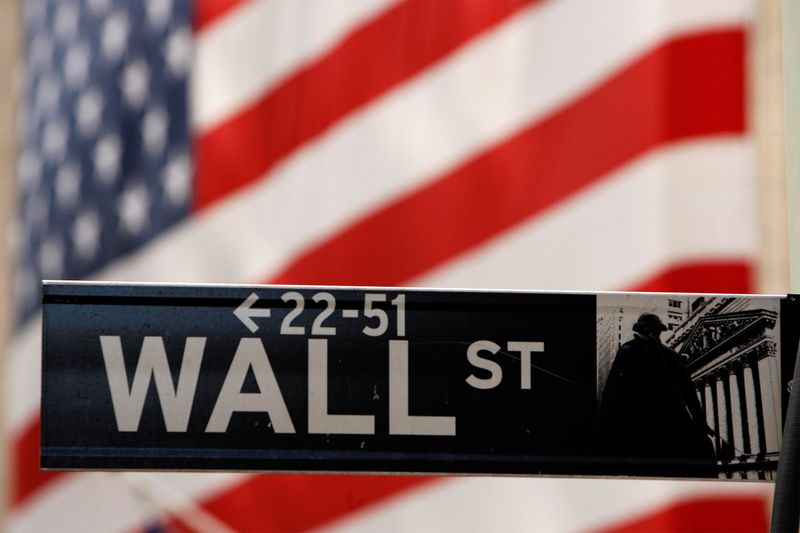This post was originally published on this site
https://i-invdn-com.akamaized.net/trkd-images/LYNXNPEG1N1VO_L.jpg © Reuters. FILE PHOTO: A Wall Street sign is seen outside of the New York Stock Exchange
© Reuters. FILE PHOTO: A Wall Street sign is seen outside of the New York Stock ExchangeBy Sinéad Carew
(Reuters) – While Wall Street’s broader indexes fell sharply on Monday on concerns about coronavirus, investors turned to some consumer companies as they bet on stock-piling of products such as disinfectants and shelf-stable foods.
With virus cases rising in Italy and several Middle Eastern countries dealing with their first infections, fears of a global pandemic sent markets into a tailspin, even as China eased curbs with no new cases reported in Beijing and other cities.
Clorox Co (N:), a supplier of bleach and other cleaning products, was one of the top percentage gainers in the S&P 500 () and one of two stocks in positive territory in the consumer staples sector (), which tends to be seen as a relatively safe bet even in a weak economy.
Other outperformers in the staples sector included tissue maker Kimberly-Clark (N:) and food suppliers such as Hormel Foods (N:), and Campbell Soup Co (N:) as investors bet on rising demand in the event consumers have to prepare to stay at home if the virus keeps spreading.
“These products are going to be more in use than others in the group given the spreading of the virus. It’s a knee-jerk reaction,” said Paul Nolte, portfolio manager at Kingsview Investment Management in Chicago though he said it was too early to say whether consumers would end up stockpiling anything.
(GRAPHIC: Campbell Soup Co vs. the – https://graphics.reuters.com/USA-STOCKS/0100B5FN3PK/fear-and-soup.png)
After rising as much as 2.2% early in the session, Clorox shares were last up 1.7% and trading volume was 1.6 times their 10-day moving average. Given the global nature of investor concerns, it was also being rewarded for depending mostly on domestic revenue, said Nancy Tengler, chief investment officer of Laffer Tengler Investments.
About 85% of Clorox revenue came from within the United States last year, according to Refinitiv.
“Typically the reward goes to companies that do not have a lot of exposure globally, but also Clorox sells a lot of disinfecting products,” said Tengler, who owns Clorox personally but says it is too expensive to include in client portfolios.
While Kimberly-Clark, Campbell Soup and Hormel were still down on the day, their declines of less than 1% compared with the S&P’s 3% decline and the staples sector’s 2.5% drop.
“Days like today have indiscriminate selling, so you have to put the money somewhere. What’s the best of the worst?” said Kingsview’s Nolte.
Fusion Media or anyone involved with Fusion Media will not accept any liability for loss or damage as a result of reliance on the information including data, quotes, charts and buy/sell signals contained within this website. Please be fully informed regarding the risks and costs associated with trading the financial markets, it is one of the riskiest investment forms possible.

